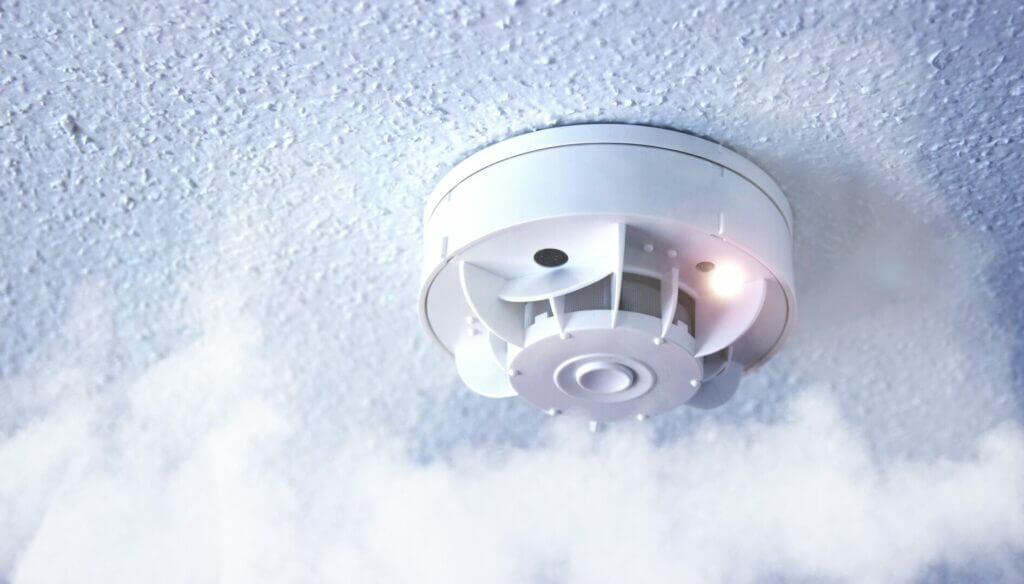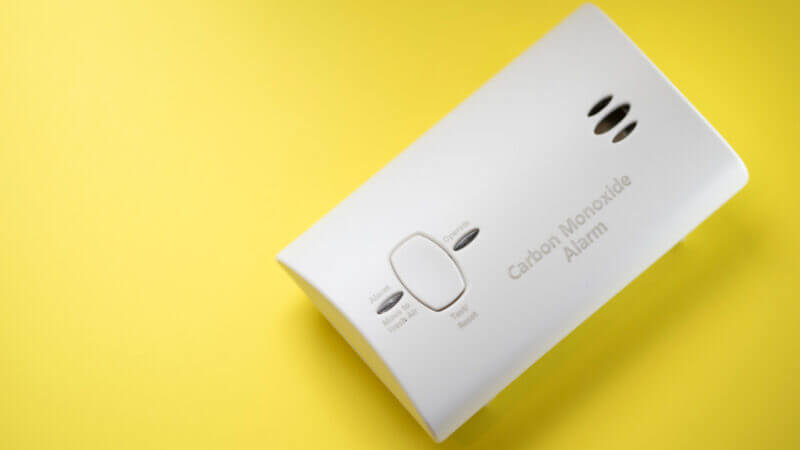Table of Contents Show
An RV carbon monoxide detector can save lives. Safety comes first in a home on wheels. Protecting you and your loved ones from breathing in toxic gases should be near the top of your checklist. Let’s explore what a carbon monoxide detector is and which are the best on the market.
What Is an RV Carbon Monoxide Detector?
A CO2 (carbon monoxide) detector alarms when it detects colorless and odorless gas. You shouldn’t inhale carbon monoxide. It can cause a headache, dizziness, stomach ache, chest pain, confusion, or death. However, a detector could prevent a major disaster.

Why Every RVer Needs an RV Carbon Monoxide Detector
An RV carbon monoxide detector is an important safety and maintenance tool for your RV. Since it can help prevent a dangerous situation, it’s a must-have safety feature. But it can also serve as preventative maintenance. Carbon monoxide is flammable and, therefore, can cause a fire or explosion in your RV.
Best RV Carbon Monoxide Detectors
We found three of the best RV carbon monoxide detectors on the market. Check out the pros and cons of these brands.
Safe-T-Alert Dual LP/CO Detector
- Double-duty alarm detects both gas leaks and co gas simultaneously
- Reliable 12v power means no missing or dead batteries to replace
The Safe-T-Alert Dual LP/CO Detector alerts you against propane leaks and carbon monoxide in the air. This all-in-one detector fits any RV. It relies on 12-volt power instead of batteries.
Pros:
The Safe-T-Alert detector is a dual propane and carbon monoxide detector. Plus, it connects to 12-volt power without the need for constant battery replacements. So it can protect you with or without shore power, as long as you charge your RV battery.
Cons:
Since it’s a 12-volt RV carbon monoxide detector, it might be difficult to install. However, you can read up on it or search for a YouTube tutorial. Otherwise, you may want to hire a professional.
First Alert Battery-Powered Carbon Monoxide Detector
- Keep your family safe with this 2-pack of easy to use, battery operated carbon monoxide alarms; Battery powered alarms...
- Features an advanced electrochemical carbon monoxide sensor that accurately detects carbon monoxide levels, no matter...
The First Alert Carbon Monoxide Detector uses battery power. It has a loud 85-decibel alarm that sounds when it senses carbon monoxide levels have reached a dangerous point. And it’s equipped with an end-of-life chirp to alert you need to replace the unit. In addition, you’ll get a five-year warranty with your purchase.
Pros:
First Alert is a trusted brand that tests its products rigorously and gets excellent reviews. In addition, the detector relies on battery power, so your RV doesn’t need shore power or a charged battery for you to be protected.
Cons:
The First Alert battery-powered carbon monoxide detector doesn’t sit flush with the wall. This may not be a deal-breaker, but it’s slightly annoying. Plus, you’ll eventually need to change the batteries.
First Alert Combination Smoke and Carbon Monoxide Detector
- The front cover design of the alarm may vary but product function remains the same.
- Keep your family safe with this battery operated smoke and carbon monoxide alarm; Battery powered alarms provide...
The First Alert SCO5CN is a combination smoke and carbon monoxide detector. It uses batteries, so it can still alert you to issues even if you experience a power failure. In addition, this model comes with a seven-year warranty.
Pros:
First Alert’s smoke and carbon monoxide detector combo uses batteries so that you can rely on it no matter your electric situation. One of the features that sets this model apart is that it has a photoelectric sensor that detects larger fire particles.
Cons:
Like the previous First Alert detector, this one doesn’t sit flush with the wall, and you’ll have to change out the batteries when they die.
As you’re going through your checklist of safety features on your RV, be sure you have a quality RV carbon monoxide detector. Any of the three brands we’ve recommended in this article are excellent choices. Carbon monoxide isn’t something to take chances with. Preparation will keep you and others protected. And remember to maintain your detector by checking the batteries or connection. Do you have a carbon monoxide detector in your RV yet?
Last update on 2024-07-26 / Affiliate links / Images from Amazon Product Advertising API










Hi, thanks for this article. I like the fact that the First Alert has smoke detection, too. But if you’re cooking outside the van, and the slider door is open, isn’t the smoke from cooking likely to set off the detector?